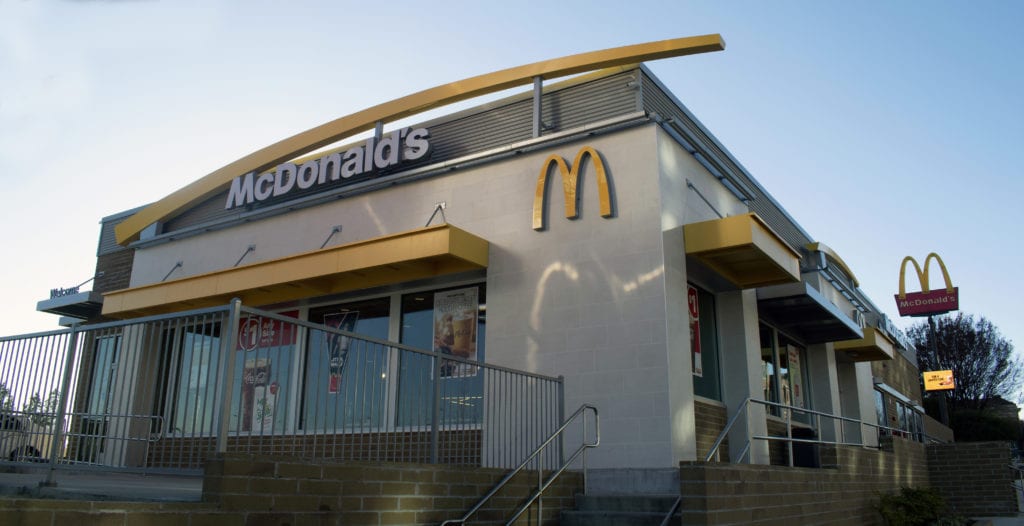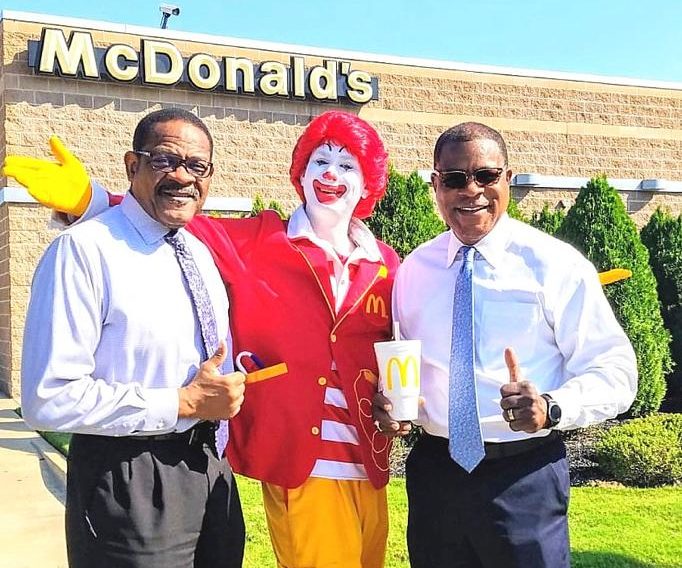Three African Americans have leasing rights to about half a dozen of the 50-plus McDonald’s franchises in Memphis, Collierville, Somerville, Arlington and the surrounding area and that trio of operators could drop to two by the end of the month.
In addition to brothers James Byrd and Darrell Byrd, the Memphis-area operators include George Jones, who plans to sell the remaining two of what was four stores. Jones confirmed his plans but would not comment further.
Nationwide, McDonald’s black franchisees have been dwindling for about a decade-plus (from 300-plus to less than 200) and that has caused some friction amongst the fast-food giant that is in the middle of a corporate shakeup with the firing of CEO Steve Easterbrook and the appointment of Chris Kempczinski to take his place.
Joe Erlinger, who has been tapped to be president of McDonald’s U.S. business, recently said he plans to travel the country visiting restaurants and learning from franchisees, according to a leaked memo obtained by Business Insider.
Although the meetings will be summits attended by managers ranked above franchisees, James Byrd said he has a specific subject he would like to address with Erlinger.
“I would love to see more franchises in Memphis and in Shelby County owned by African Americans,” he told The New Tri-State Defender. “When I started there were two and it remains two.

“I am happy and proud to be a McDonald’s operator,” Byrd said. “My goals would be to continue to grow sales and profit and expand my two-store base.”
Larry C. Tripplett, chairman of the National McDonald’s Black Operators Association, said his organization is working with company management to address a wide range of issues.
“We got some commitments from the company, and we’ll see (what happens),’’ he said, pointing out that was “cautiously optimistic.”
Tripplett, a franchisee with several stores in the San Francisco Bay area, said he was not aware of the situation in Shelby County, but added, “We support the Byrd Brothers.
“At this point we’re working to make sure that African Americans are being treated fairly by McDonald’s, that includes African-American employees, franchisees and customers.”
Local franchisee Darrell Byrd noted the popularity of McDonald’s in African-American communities and African American’s contribution to the corporation’s cash flow. That should be reflected in ownership as well as in employment, he stressed.
“The African-American customer base (in Memphis) uses McDonald’s,” he said. “In the ’92 riots in L.A., they burned everything (in the African-American community) but the McDonald’s.”
James Byrd said part of the problem for African-American franchisees is that many have been established later than other franchisees. This means they are required to pay more to the company in a lease agreement that includes a base lease payment and a certain percent of the gross earnings of each restaurant.
How soon you obtain a lease from McDonald’s and where your store is located determines how much you pay.
CNBC reports that African-American franchisees are leaving the chain as cash flow disparity between them and their white counterparts grows.
In 2008, there were about 304 African-American franchisees at the chain and in 2017, there were 222.
The average cash flow of African-American franchisees is much less than the average cash flow of all of the chain’s restaurants, the report said.
McDonald’s African-American franchisees are choosing to leave the chain as the disparity in performance between their restaurants and their white counterparts grows, Business Insider reported Monday.
And that makes adapting changes like parallel drive-throughs harder on them, James Byrd said.
A spokesperson for McDonald’s customer services department said 95 percent of McDonald’s restaurants are franchisee-owned.
Denise T. Wilson, Southeast Brand Reputation manager for McDonald’s, released a written statement from McDonald’s Corporation Tuesday.
“It is among our top priorities that all McDonald’s franchisees in all communities have the opportunity to prosper , grow and achieve their business ambitions,” the statement read.
“These efforts are rooted in our core belief that diversity and a vibrant, inclusive and respectful McDonald’s makes us stronger.”
The corporation did not comment specifically on the situation in Memphis and the surrounding area.




